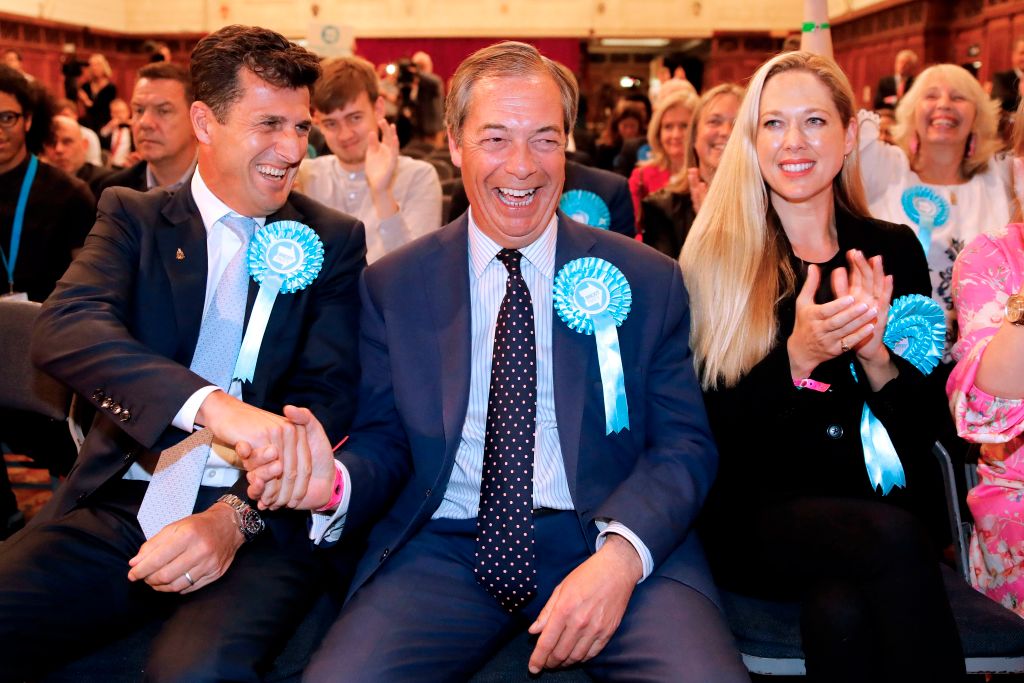
Voters have told the politicians to deliver Brexit. Why don’t they just get on with it?
- Select a language for the TTS:
- UK English Female
- UK English Male
- US English Female
- US English Male
- Australian Female
- Australian Male
- Language selected: (auto detect) - EN
Play all audios:
One salient fact emerges from the European elections: the British really are quite different from their Continental neighbours. For the rest of Europe, the issue is still migration, which is
often a proxy for race and religion. Here, the issue was democracy. Unlike the Brexit Party, which romped home in the UK, the nationalist parties that did well in France, Italy and
elsewhere don’t campaign to leave the European Union. The British are leaving the EU, not because they are too xenophobic, but because they are too democratic.
Democracy, indeed, has been so deeply ingrained in the British national psyche for so long that we instinctively punish those who disregard it. Three years ago, it was the EU that was
rejected; last night it was the turn of the two main political parties. For both the Conservatives and Labour, these were their worst ever results.
In London and in Scotland, both regions that voted heavily for Remain in 2016, the Liberal Democrats and the Scottish Nationalists humiliated Labour. Everywhere else, the Brexit Party scored
a runaway victory. If this result were replicated in a general election under the first-past-the-post system, the Brexit Party would completely dominate Parliament. The Tories would hardly
win a single seat; Labour very few.
Of course, this was not a general election. The British were not electing a government, but a European Parliament about which most people know little and care less than they do about the
Eurovision Song Contest. They seized the opportunity to be heard, loud and clear, on a question that they do care about. Voters wanted to send the strongest possible signal to their
representatives in Parliament, reminding them that they are the servants, not the masters, of the electorate.
The country remains as divided as ever, but the failure to deliver Brexit has mobilised those who voted to leave more effectively than those who voted to remain. The Brexit Party took off as
soon as it became clear that Theresa May was no longer determined to stick to the deadline of March 31. First one extension, then a second until October 31, sealed not only her fate, but
that of her government and her party. They have all been given notice to quit.
The Tories have one last chance. They can choose a new leader who will neutralise the threat from Dr Frankenstein — sorry, Farage — and his monster, before they get completely out of
control. But the creature can only be killed with kindness. For the Conservatives to woo back more than five million voters who last week voted for the Brexit Party, they will have to take
the message of this election to heart. This time, Brexit really must mean Brexit — or else. If the UK is still in the EU after next Hallowe’en, those responsible will have passed the point
of no return. And come the next general election, the Tories will be toast.
Who, then, is the candidate who can carry off the seemingly impossible task of persuading Parliament to exit the EU, in a manner that does not cripple the economy, while simultaneously
putting the Brexit Party out of business? We don’t yet know, because not all of those who are eligible have declared, but it is already clear that the Tories don’t have the luxury of a
leisurely leadership contest. Six weeks has been mooted: three for the parliamentary party to whittle down the choice to two, then another three weeks to ballot 160,000 members. That takes
us to July, after which the House of Commons will rise for the summer recess and not return until September. No sooner will MPs return, however, than they depart again for a three-week party
conference season. By the time they return in October, there will be less than a month before the EU’s extension runs out. No wonder Brussels expects Mrs May’s successor to come — like her,
cap in hand — to beg for another stay of execution.
So the parliamentary timetable apparently dictates the destiny of the country. That is not acceptable to the voters who have just given the politicians a final warning. It might just be that
Parliament will have to work harder this summer than for a good many years. MPs like to claim that they need time in their constituencies. Well, why not ask their constituents how they feel
about MPs giving themselves a vacation lasting more than two of the five months left until October 31. The parliamentary timetable, after all, is entirely in their hands.
In 1940, during the Battle of Britain, the Commons had a recess of just two weeks. It was beyond the power of Parliament to bring the Second World War to an end — but it is not beyond its
power to bring Brexit to an end. A new Prime Minister could be chosen in a lot less than six weeks, and Parliament should show a proper sense of urgency. This is, after all, a national
emergency. There is work to be done and the Government needs to get on with it. The message from the voters has now been delivered. It consists of one word: “Brexit.” And it is marked:
“Action this day.”
By proceeding, you agree to our Terms & Conditions and our Privacy Policy.
If an account exists for this email address, you will shortly receive an email from us. You will then need to:
Please note, this link will only be valid for 24 hours. If you do not receive our email, please check your Junk Mail folder and add [email protected] to your safe list.